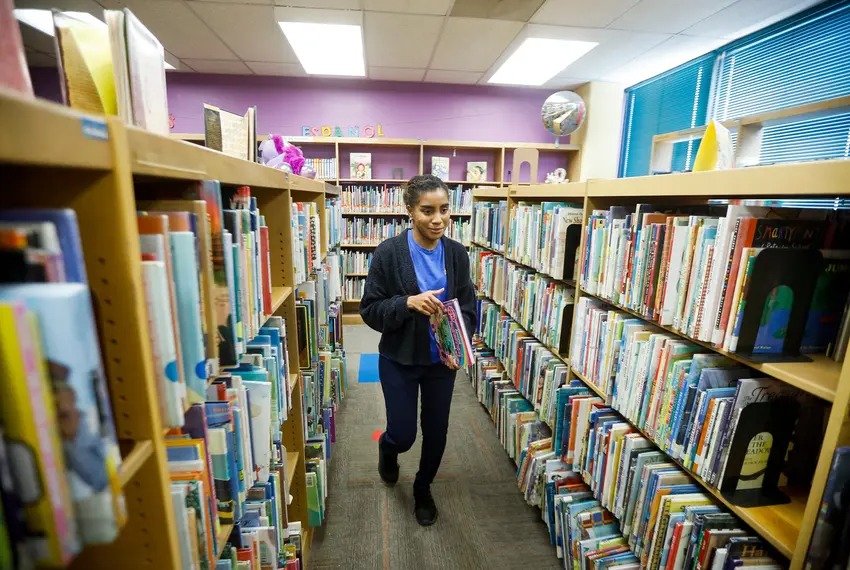
By Carlos Nogueras Ramos and Jayme Lozano Carver, The Texas Tribune
ANDREWS Paige Bowman, the director of this small West Texas county’s library, proudly displays her love of books, wearing a shirt that reads: “The library is my happy place.”
Sunlight beams through floor-to-ceiling windows. Rows of wooden shelves hold thousands of books. One wall is painted like the sky, fluffy clouds included. Miniature paper hot air balloons are suspended from the ceiling.
The library that serves the nearly 19,000 people who call Andrews County home, Bowman says, is a haven for those who can’t afford the internet. It is a cool shelter in the summer for residents without air conditioning. And it is a gathering place for adults and children alike.
But as Bowman grapples with the reverberation of a growing national movement to ban certain books in public places, stress and anxiety are creeping into her happy place.
“Our job is to figure out what the community needs, and small towns are conservative,” Bowman said. “It’s a challenge because we want to keep people happy and not ruffle feathers.”
The national quarrel over books on race and gender that are available in public spaces — particularly those written by Black and LGBTQ+ people — has come to West Texas.
Both conservatives who seek to limit access to literature they deem offensive and progressives who see themselves as the last line of defense for free information are actively organizing.
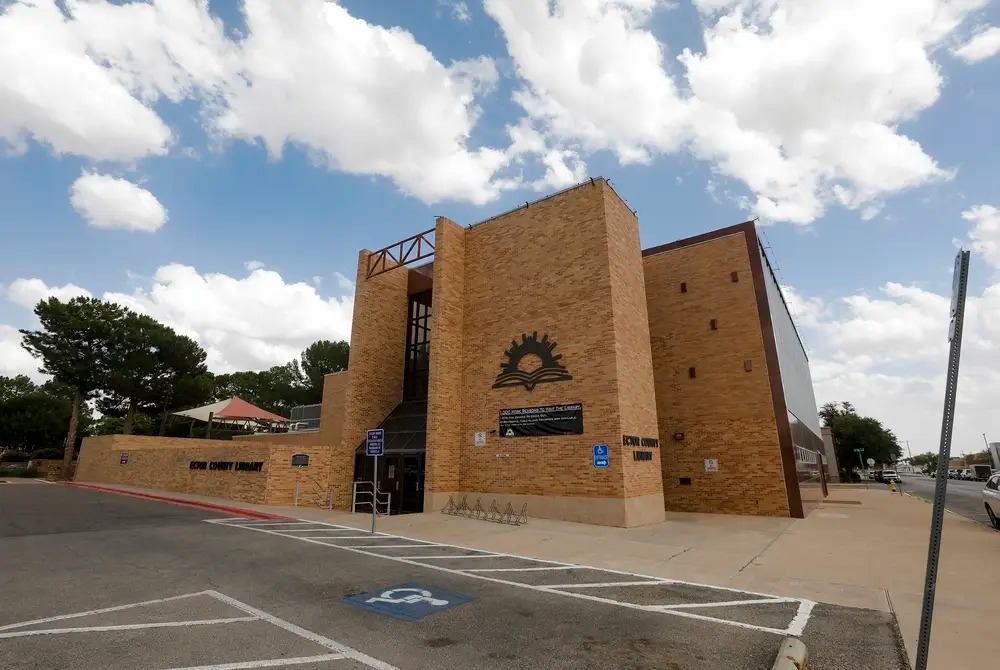
Librarians find themselves once again caught in the middle. Many try to keep their heads down, wishing the tempest will pass. Others are actively reaffirming a library’s place in their communities, not just as a center for information but as a gathering place. And there are those who are rethinking what they offer their community. In Midland, for example, the library system won a $72,000 grant and will use the money to invest in job training opportunities, to help close the digital divide in rural parts of the county and to offer more science, technology, engineering and mathematics courses for all age groups.
No matter how beneficial the work is, it hasn’t stopped West Texas policymakers from joining the fray.
Earlier this week, the Midland County commissioners debated proposed changes to the library district’s policy on challenged books. No changes were put in place — for now. However, the five-member committee directed the library to leave the American Library Association. The decision follows a move made by the Montana State Library in response to a 2022 tweet posted by the association’s president describing herself as a “Marxist Lesbian.”
Disagreements over what books belong in public libraries are nothing new in the United States. What’s different about this period is the speed and breadth. The number of known requests to have a book removed from a library in the U.S. doubled between 2021 and 2022, according to the American Library Association’s Office for Intellectual Freedom.
In Texas, one study shows the state has banned 801 books across 22 school districts. State lawmakers also passed House Bill 900 during this year’s legislative session, requiring book vendors to assign ratings for books based on the presence of depictions or references to sex, and requiring public school libraries to remove books with a “sexually explicit” rating. A lawsuit was recently filed against the bill.
In Abilene, two hours east of Midland, the city manager directed the city’s library to remove a graphic novel from one branch’s adult’s fiction section. In Llano County, a judge ordered county and library officials to return previously banned books to its shelves.
Kate Laughlin, executive director of the Association for Rural and Small Libraries, said the current pressures on public libraries differ from average, individual complaints. Hearing the concerns of a parent or a member of the community, Laughlin said, is part of a librarian’s role.
“To a librarian, it’s not personal,” she said. “But what we’re seeing right now is unprecedented within my lifetime.”
The ongoing battle in Lubbock
In Lubbock, the fight over books is fraught as both sides seek to rally grassroots support for their views.
Earlier this summer, the Lubbock chapter of the True Texas Project, a far-right group that traces its roots to the 2009 tea party movement, attempted to host an event dubbed “Defeat Dirty Books.”
The event was scheduled at the city’s Science Spectrum, a nonprofit museum and theater. Tracy Shannon, an anti-transgender activist with ties to conspiracy theorist Steve Hotze and other extreme anti-LGBTQ+ figures, was booked to speak for the event. Shannon also leads the Houston chapter of MassResistance, which has been designated as a hate group by the Southern Poverty Law Center since 2008.
Other Lubbock residents fought to cancel the event.
“It’s disturbing that someone like that would even be allowed to rent the Science Spectrum,” said Nick Harpster, public relations and advocacy coordinator for LubbockPRIDE.
Harpster was one of the residents who called the Science Spectrum and pushed for the event to be canceled.
The True Texas Project, which has benefited from the largess of West Texas oil tycoon and Republican megadonor Tim Dunn, did not respond to a request for an interview.
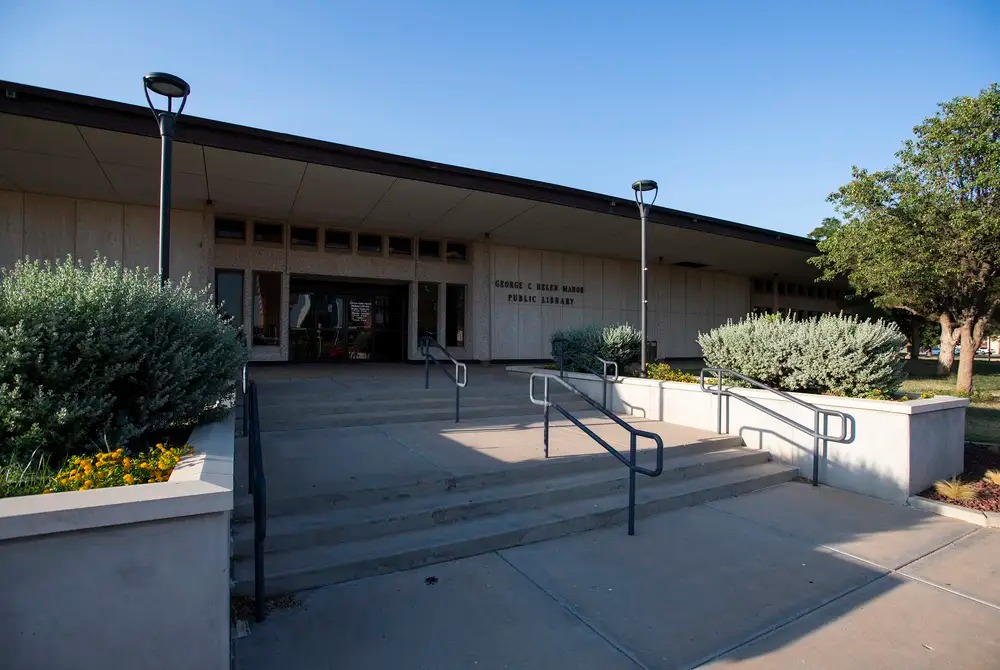
Pressure from Harpster and other Lubbock residents worked. The museum backed out of the event, and so did another venue. Ultimately, it took place at a local church. Lubbock, like the rest of West Texas, is largely conservative and was a harbinger in the debate over reproductive rights, so the latest salvo has some worried their neighbors are shifting even further to the right.
“When we have an uneducated, uninformed populace, we have a populace that is easy to manipulate and control,” said Gracie Gomez, chair of the Lubbock County Democratic Party.
Gomez organized an event recently at Mahon Library in Lubbock that aimed to inform residents about the True Texas Project and the book ban movement. Gomez sees the movement as both anti-education and a way to rewrite history by limiting what information is available in libraries.
As conservative groups push to get certain books out of libraries, some are also holding events to promote the books they deem appropriate for young readers. An event called “See You at the Library” was aimed at promoting children’s books championing conservative values. More than three dozen events were held across the state earlier this month — including in Midland.
Peter Muhlberger, a former political science professor in Lubbock, likened the landscape in Texas to Florida where, according to a PEN America study, book bans are most prevalent. And with Lubbock County being majority conservative — more than 65% of the county voted for Donald Trump in the 2020 election — Muhlberger said the city is low-hanging fruit for right-wing movements.
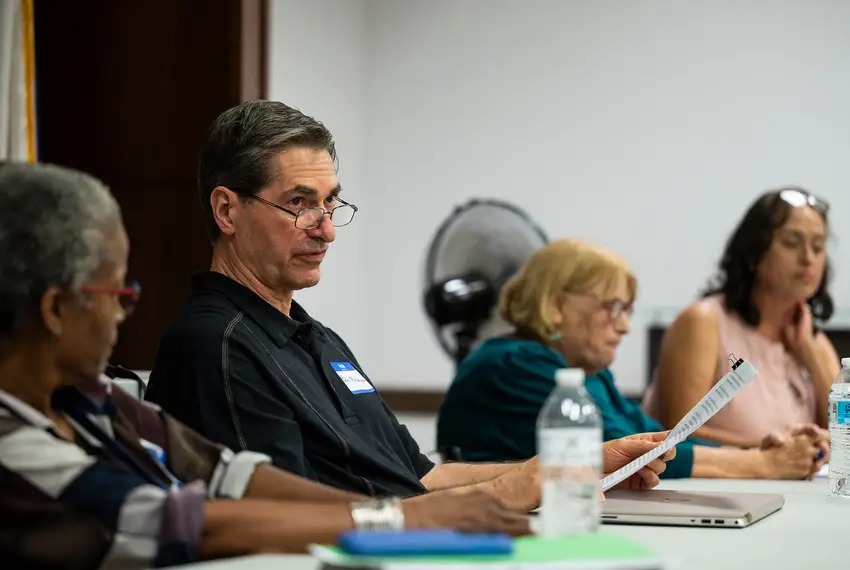
“Lubbock has a pretty extensive network of churches, a lot of them quite conservative,” Muhlberger explained. “So to them, it probably looks like an easy win.”
West Texas libraries as shelters
With peace unlikely anytime soon in the latest war on books, librarians throughout West Texas say they hope to emphasize the role of libraries as a public good.
At the Andrews County library, Bowman sees her building as more than a repository of books.. It’s a place where the community bonds.
There’s family game night, flush with puzzles and board games for anyone to join. The library fills up particularly when there’s no football game.
And every month, Bowman’s library hosts a makeshift market of activities for kids including robotics, arts and crafts.
“The biggest misconception about libraries is that they’re quiet places that just have books. Fun can happen at the library,” Bowman said.
At the Ector County library, J’Nevelyn White said she treats the space predominantly as a community center.
“Libraries have always been a public service,” White said.
In the eight years since she joined the library, she has taken on tasks like teaching Odessa’s aging residents how to use computers. She helps others with their resumes. One of her returning patrons has revised his resume eight times with White’s help.
On Tuesday evenings, the library’s book club gathers on the third floor to go over the weekly reading assignments. At a table nearby, there’s chocolate cake and fresh watermelon slices fueling the lively discussion.
The kind of socializing that happens at libraries can be hard to come by, White said, because very few places, if any, offer the breadth of services that a library does for free.
In rural communities where the distribution of information is limited because of weak broadband connections, keeping books on shelves makes information accessible for communities with scarce resources, said Laughlin, the rural libraries association executive director.
Like the Midland County public library, the Ector library recently won a $75,000 grant from the state. It plans to use the money for outreach — taking a mobile library to rural areas outside the Odessa city limits.
“The mission of this is to bring the library to you,” said Howard Marks, director of the Ector County library.
In an email to The Texas Tribune, the Texas Library Association emphasized that libraries are essential in local communities where people from all walks of life come together. They added that librarians are highly trained in collection development and follow all state, local and federal law when purchasing books.
“Libraries are the ultimate democratic institutions,” said Shirley Robinson, the association’s executive director. “They serve the entire community, not just those with certain beliefs. The library is a place for voluntary inquiry and discovery.”
Robinson said she hoped libraries could be the catalyst for healing.
“In these very divisive times, libraries provide opportunities for communities to come together to learn from each other,” she said.
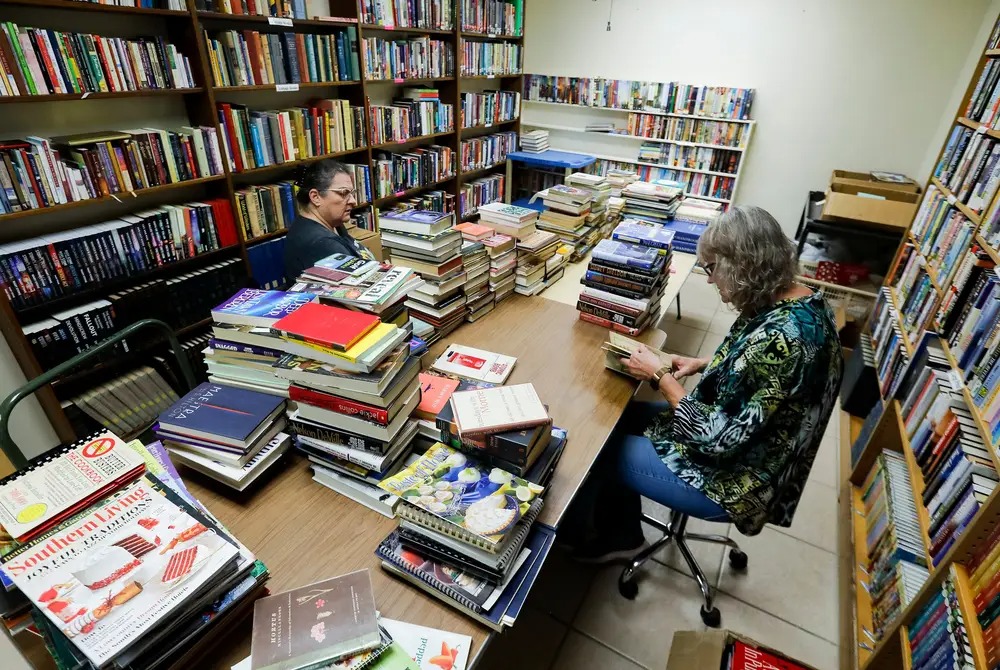
White says the political climate makes her nervous. The Ector County Library hasn’t been subjected to scrutiny or book bans, but she hears about what happens in neighboring counties, thinking it might eventually reach Odessa. The library is where residents get a slice of the rest of the world, White said, and she worries constantly about the library being stripped of that role.
Disclosure: Southern Poverty Law Center has been a financial supporter of The Texas Tribune, a nonprofit, nonpartisan news organization that is funded in part by donations from members, foundations and corporate sponsors. Financial supporters play no role in the Tribune’s journalism. Find a complete list of them here.
This article originally appeared in The Texas Tribune at https://www.texastribune.org/2023/08/18/west-texas-book-banning-debate-public-libaries/.
The Texas Tribune is a member-supported, nonpartisan newsroom informing and engaging Texans on state politics and policy. Learn more at texastribune.org.



